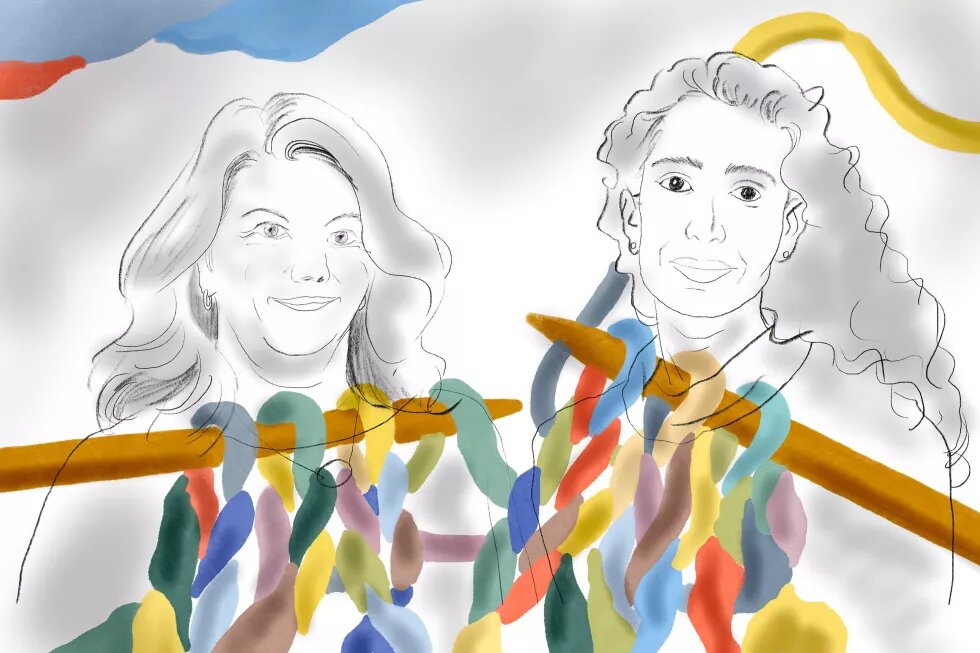The Feminist Voices Connected dossier explores feminist strategies for dealing with global and local forms of sexism and anti-feminism. We have invited academics, activists, lawyers and artists from all over the world to report on their experiences.

Feminist work – that is, work that promotes gender equality, sexual self-determination, and democracy – takes place all over the world, regardless of whether those doing such work identify as feminists or not. All we have to do is look, listen, and try to understand. It’s also crucial that we clearly communicate our work so that not only self-described feminists, but all interested individuals around the world understand what is at stake. Only then can a larger “we” emerge that is powerful enough to act as a counterforce to the wars breaking out across the globe, to the increasing sexualised violence and the escalating crises, and to the countless other political challenges.
At the same time, however, anti-feminist movements are growing stronger, and they are better organised and financed than many people realise. Such movements seek to restrict the rights and freedoms of women and queer people or to do away with them altogether. In the name of the “traditional family” and a supposedly better past, they try to turn back the clock as they embrace authoritarian, ethnonationalist, or religious fundamentalist ideas and practices. A society of many and diverse social groups, based on democracy and participation for all and requiring deliberative processes and compromises, is anathema to them. Anti-feminism is therefore a central component of far-right movements and the glue that holds them together, while also serving as a bridge to the conservative camp. Those who believe in democracy should keep a close eye on this political phenomenon.
What does feminist solidarity mean in the face of today’s many wars?
The Feminist Voices Connected dossier shines a light on feminist responses and strategies addressing global forms of anti-feminism and its networks. We invited scholars, activists, lawyers, and artists to share their experiences of sexism and anti-feminism, and most importantly, their strategies for overcoming them. Our conversations always started with the question, “What sexist or anti-feminist stories and narratives have gotten your attention lately and why?” We then asked them to choose the format in which they would like to present their experiences and counter-strategies. The result is a dossier that combines essays, analyses, interviews, and comics from Afghanistan, Columbia, Germany, India, Latin America, the Middle East, Ukraine, and the African continent. What we have in common is the intersectional approach and the goal of overcoming white feminism as the norm.
As the initiators of Feminist Voices Connected, we knew that such a transnational dialogue on feminism and human rights was urgently needed, but we also knew it would be anything but easy. What does feminist solidarity mean in the face of today’s many wars? How can we explain our feminist strategies in a way that can be understood by people working in other regional contexts? What is needed so that we can listen to each other?
The contributions to the dossier were written before Hamas’s brutal massacre of Israeli civilians on 7 October 2023 and the subsequent war in Gaza, which claims so many Palestinian lives. All the more reason to ask: How can we prevent polarisation between feminists from the global South and North while not turning our backs on the suffering in Ukraine or Afghanistan? To what extent can we reconcile conflicting narratives and histories? And what kind of feminist resistance is needed to sustain the alliances that play a vital role in ensuring our planet remains liveable?
We extend a huge thanks to all the contributors!
You have so generously shared your knowledge, time, and creativity with us. Every single conversation was valuable; your contributions speak for themselves.
Nothing would have gotten done without Munkhzul Togmid, Louisa Warth, and Antonia Götte, who made a fantastic team across the areas of finance, communications, and event management.
We are no less thankful to the copy editors and translators who worked on the dossier, in particular Todd Brown, Kathrin Hadeler, and Birgit Albrecht. A big thank you also goes to Ipek Erdöl and Bilge Emir, who teamed up to create the key visual for Feminist Voices Connected, and to Bilge for the beautiful illustrations. Petra Tesch built the dossier and patiently guided us through many pitfalls.
And thanks are also due to Johanna M. Keller, Galyna Kotliuk, Shoshana Liessmann, Dalia Othman, Marc-André Schmachtel, and Claudia Zilla for serving on the editorial board. In addition to paying close attention to textual details, they ensured that we didn’t lose sight of the big picture.
Last but not least, we would like to thank Peter Kettner und Katja Kessing from the German Federal Foreign Office. They believed in this project from the very beginning, providing guidance along the way and making the financing possible.
-----
Translated into English by Tedd Brown.
This editorial is part of the dossier Feminist Voices Connected.